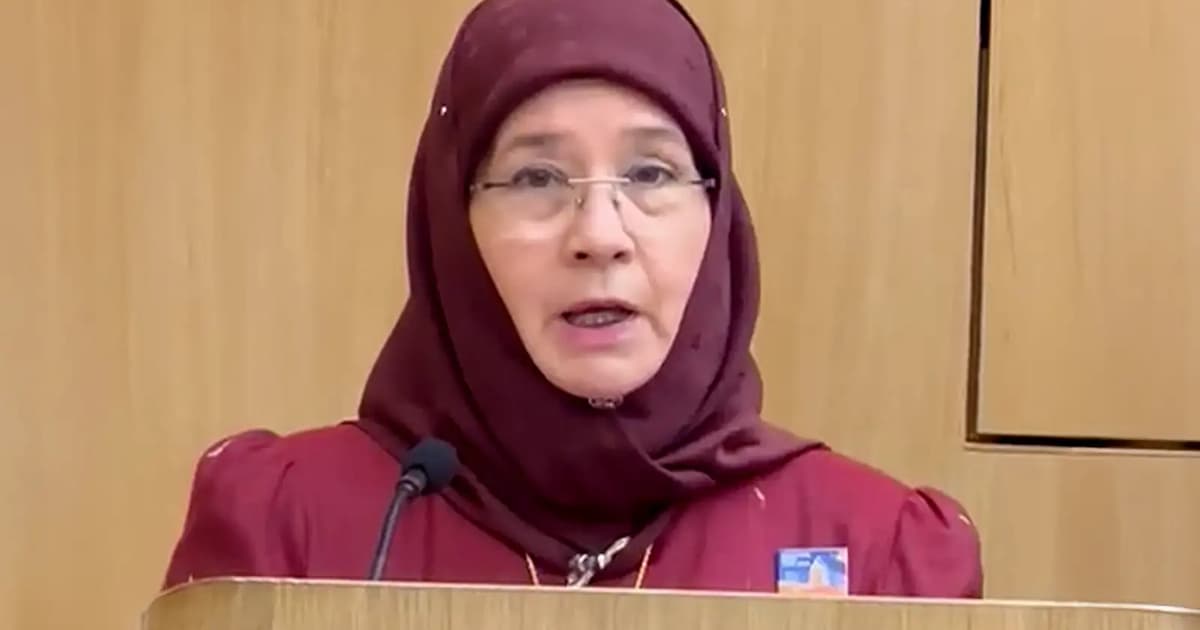
The Tengku Ampuan of Pahang, Tunku Azizah Aminah Maimunah Iskandariah, has called for the Hukum Kanun Pahang, the state’s 16th-century legal code to be accorded due recognition among the world’s other iconic charters, including the Magna Carta and the Code of Hammurabi.
“Pahang and the Malay world it represents, was never a mere kingdom, but a civilisational force: learned, lawful, and luminous; not a relic of nostalgia, but the written heartbeat of a sovereign Malay-Islamic world,” Tunku Azizah said in a lecture at Oxford University, UK.
In the lecture, titled “Pahang: the forgotten Malay-Islamic constitutional and maritime legacy”, she described the state’s ancestral law as the “written heartbeat of a sovereign Malay-Islamic world” – one that predates many Western constitutional traditions.
Tunku Azizah said 16th century Pahang was not merely a kingdom by the sea, but a “kingdom of the sea” – a maritime civilisation that governed its waters “through justice, not conquest, through civilisation, not colonisation”.
Pahang, she said, was “a civilisation of ports and pen, of trade and truth, where faith and justice sailed together, drawing merchants not with muskets but with mastery of seamanship, diplomacy and faith.”
Compiled between 1592 and 1614 under Sultan Abdul Ghafur Muhyiddin Shah, the Hukum Kanun Pahang is regarded as one of Southeast Asia’s oldest and most complete legal manuscripts.
That makes Sultan Abdul Ghafur the “architect of Malay-Islamic constitutionalism”, Tunku Azizah said, a “forgotten lawgiver” whose codification preserved the state’s moral and legal order.
She said the legal code was more than just a lawbook. It was a full expression of sovereignty, justice and faith, governing everything from naval ranks and taxation to piracy and the duties of rulers and subjects.
“It transformed a sultanate into a civilisation,” she added.
The Tengku Ampuan also challenged colonial narratives that miscast the Orang Laut as pirates, asserting that they were in fact enforcers of the sultan’s justice.
“Centuries before international maritime law, Pahang had already articulated a philosophy that the sea could be governed through justice,” she said.
Tunku Azizah said the Hukum Kanun Pahang deserves to be placed in the same league as the Piagam Madinah, the Twelve Tables of Rome, and the Justinian Code.
She said the manuscript, housed in the Pahang State Museum, deserves global recognition and should be inscribed in Unesco’s Memory of the World.
“Europe came to Asia seeking spice, but they left with flavour, fabric and faith – the soul of the Malay world,” Tunku Azizah told her distinguished audience.
The Pahang royal called for scholars and institutions worldwide to acknowledge the historic Pahang document as a living testament to a sovereign Malay-Islamic civilisation.
Tunku Azizah was speaking at the opening of Pahang and the Sea, a workshop featuring maritime scholars and researchers working on Southeast Asia, the Indian Ocean, the Middle East, and China.
Jointly organised by Muzium Pahang and St Antony’s College, the workshop is set to run today and tomorrow, and will feature several internationally renowned scholars tracing Pahang’s role along the Spice Route, and the state’s connections with the Persian Gulf and Europe.
Tunku Azizah’s speech was preceded by welcome addresses delivered by Eugene Rogan, a leading historian on the Middle East, and Raihan Ismail, a professor in contemporary Islamic studies based in Oxford University.






